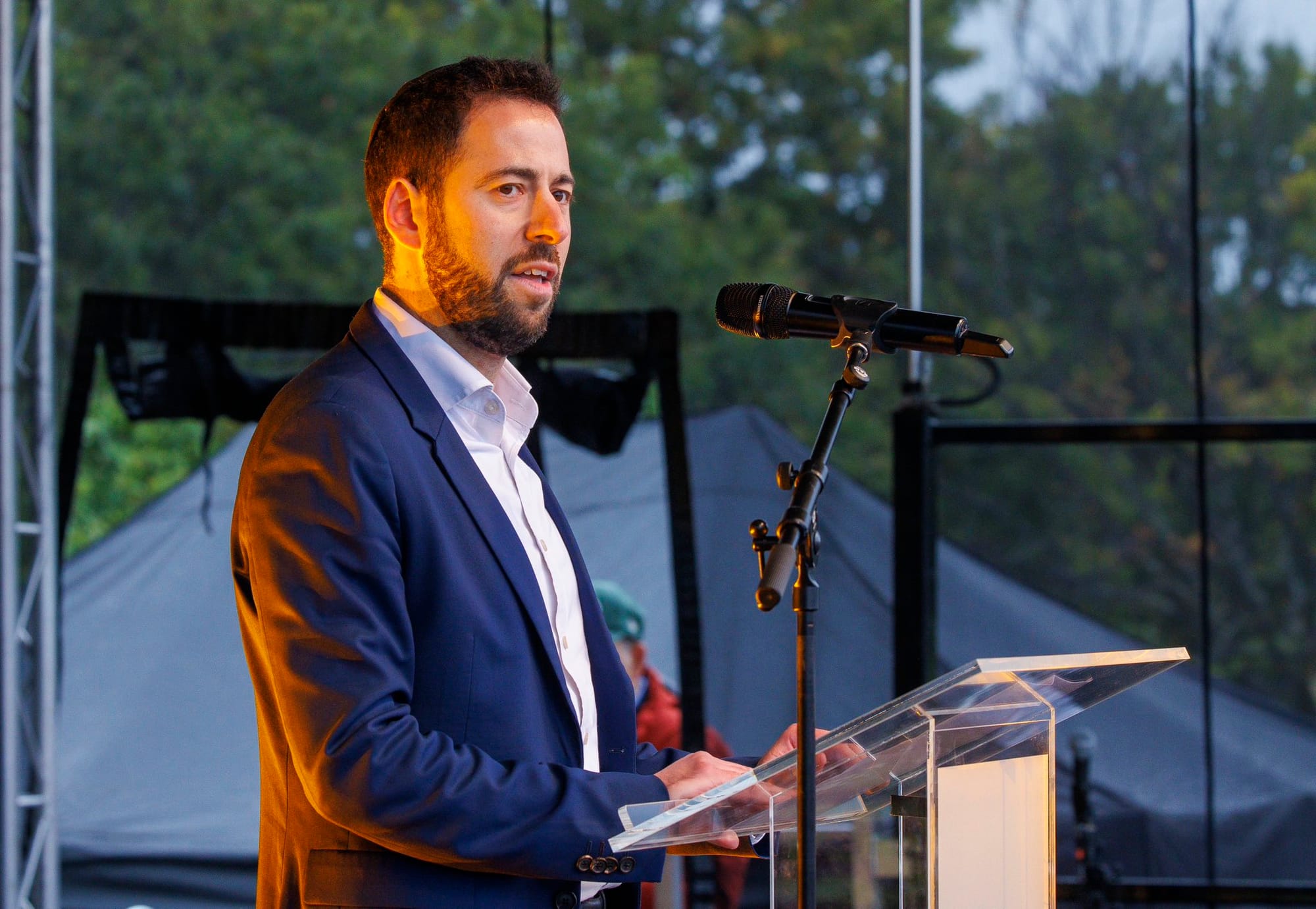
“He’s got to learn to co-operate.” / “What do you mean ‘co-operate’?” / “I mean, obey my commands! That’s what ‘co-operate’ means when you’re prime minister.”
If we substitute the words “prime minister” with “president of a Jewish communal organisation”, this exchange from the always relevant Yes, Prime Minister neatly encapsulates what’s been going on at the Board of Deputies (BoD) in recent days.
The BoD consists of around 350 Deputies each nominated as representatives by synagogues and other Jewish groups around the UK. They, in turn, elect a president – currently Phil Rosenberg – and other honorary officers once every three years, and meet monthly to debate/argue about issues facing our community.
Last week, 36 Deputies, dissatisfied with their leaders’ fawning attitude towards the Israeli government and its military strategy in Gaza, wrote to The Financial Times to mourn the loss of Palestinian life and call for an end to the war. Unsurprisingly, this fairly anodyne letter (“out of love for Israel”) was greeted by the right wing of the Jewish community not just with criticism, but with Nebuchadnezzan rage and fury.
Some went on the direct attack, denouncing the writers as traitors, self-haters and fifth columnists. (A comment on the Facebook page of The Jewish News referring to one particular named signatory as a “kapo dhimmi louse” was still visible over 48 hours after being drawn to the attention of editor Richard Ferrer, despite its grotesque antisemitism.)
More devious critics, however, adopted an entirely different approach: they claim that the letter breaches the BoD’s rules because the writers are purporting to speak on behalf of the organisation as a whole.
That argument only needs to be considered for a moment to be dismissed. If 36 MPs signed a statement, nobody in their right mind could imagine that it reflects the unanimous view of parliament as a whole. The same applies here. The BoD claims to be a democratic organisation, so it must expect that groups of its members will hold, and sometimes collectively ventilate, views at odds with those of the majority.
Moreover, it is obvious beyond any doubt that those seeking to rely on this technicality – people who have suddenly developed an interest in and deep concern for the minutiae of BoD procedure – would not have batted an eyelid had the letter been one with which they agreed. A missive from 36 Deputies calling, say, for the forced removal of all Palestinians from Gaza, would not have aroused the ire of these right-wing voices.
Regrettably, the ire of right-wing voices is what keeps BoD president Phil Rosenberg awake at night. So, geed up by the righteous indignation of people who think that “You’re leftist scum!” is a compelling argument, Rosenberg caved in.
Six days after the publication of the Financial Times letter, its 36 authors have been placed under disciplinary investigation, and the organiser – Harriett Goldenberg, who holds an elected seat on the BoD’s executive committee – has been suspended. We know that’s what happened because Rosenberg released a press statement via the BoD’s, and his own, Facebook pages.
This was unprecedented. The BoD has disciplined Deputies before, but has never proactively “outed” those under investigation via social media. Come to that, the BoD’s constitution does not give any hint that suspending a member of its executive is even allowed.
This was a bespoke attack by the BoD leadership, specifically targeted at Deputies who had the nerve to criticise Israel’s assault on Gaza in public. Rosenberg’s squalid capitulation is problematic in three ways.
First, he has knowingly exposed 36 of his Deputies to a wave of abuse and vituperation – especially but not exclusively online – by his failure to affirm and uphold their right to express themselves. This intentional lack of support is horrible on a personal level for the 36, but it also serves to create a broader chilling effect by deterring others, in future, from putting their heads above the parapet. It is now much more intimidating for anyone other than Phil Rosenberg to dare voice an opinion.
Second, he has undermined his own, and the whole community’s, battle against antisemitism by directly and explicitly aligning the BoD – supposedly “the” representative body of Anglo-Jewry – with the incumbent Israeli government.
When ignorant people treat British Jews as if we are all culpable for the proclivities of the IDF, the BoD should be saying: Not only are we not culpable, we aren’t even collectively in favour. Look at the diverse range of views we hold! Instead, what Rosenberg has said is: Anyone connected with the BoD who criticises Netanyahu and his military will be punished, in the full glare of the media, and hung out to dry.
Third, no matter how much the BoD’s president insists that “unity is strength”, by pandering to some fairly extreme elements of the communal right wing, what he has actually done is sown discord and encouraged yet more. Quite simply, there is no such thing as communal unity when it comes to Israel. There never has been. With such a unity as unreal as the Yeti, what on earth can Rosenberg mean when he uses the word?
If by “unity” he means “whatever opinion I happen to hold”, he’s ridiculous; if he means “whatever opinion is held by those who have the greatest power to damage my prospects at the next BoD election”, he’s self-serving; and if he means “pure majoritarianism”, he misunderstands the Jewish tradition of respecting – and, crucially, publishing – minority views. None of these approaches shows proper leadership.
Instead of hunting for a mythical beast like unity, Rosenberg should be promoting something real and tangible like tolerance. A tolerant community is one in which everybody can air their thoughts regarding Israel-Palestine, or anything else, without fear of abuse, discipline or the sack. Instead, Rosenberg’s intervention has led to the community being tyrannised by a sadistic mob which has learned that any time it throws a tantrum it can successfully induce the BoD to “cancel” people who criticise Israel.
Just hours after Rosenberg announced his disciplinary intentions on Facebook, one “Israel activist” gleefully shared his post with the caption: “We said there would be repercussions!”. No doubt they’re now moving on to target the next name on their List Of Jews To Be Punished.
Progressive voices, meanwhile, quite justifiably feel like they have been offered up by the BoD as a human sacrifice. What was that about “unity”?
The BoD can, and must, repair the mess it has created, but the window of time in which that’s possible is quickly closing. It should (1) reinstate Harriett Goldenberg; (2) call off the disciplinary action; (3) issue a statement upholding the right of Deputies to speak out; and (4) tell those who disagree with what is spoken out that they have to act like adults and find some way of coping. Will Rosenberg rise to the challenge?
Gabriel Kanter-Webber is a Liberal rabbi and a former member of the BoD executive committee, writing in a personal capacity.
Author

Gabriel Kanter-Webber was ordained by Leo Baeck College earlier this month.
Sign up for The Pickle and New, From Vashti.
Stay up to date with Vashti.



